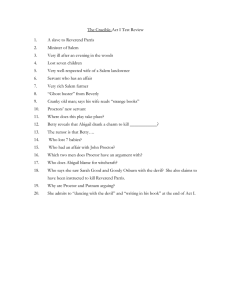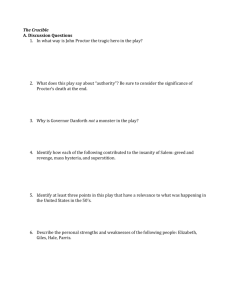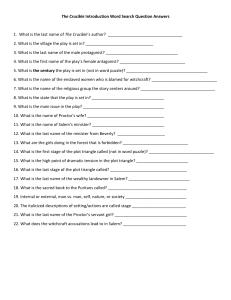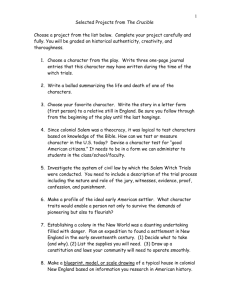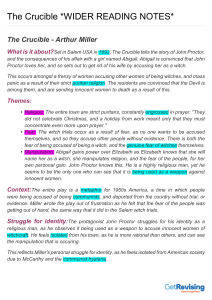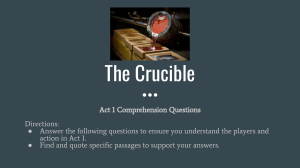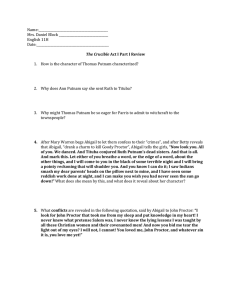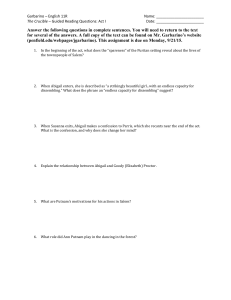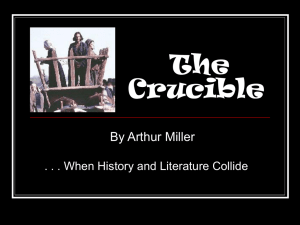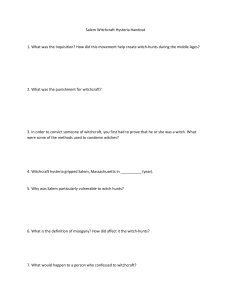The Crucible
advertisement
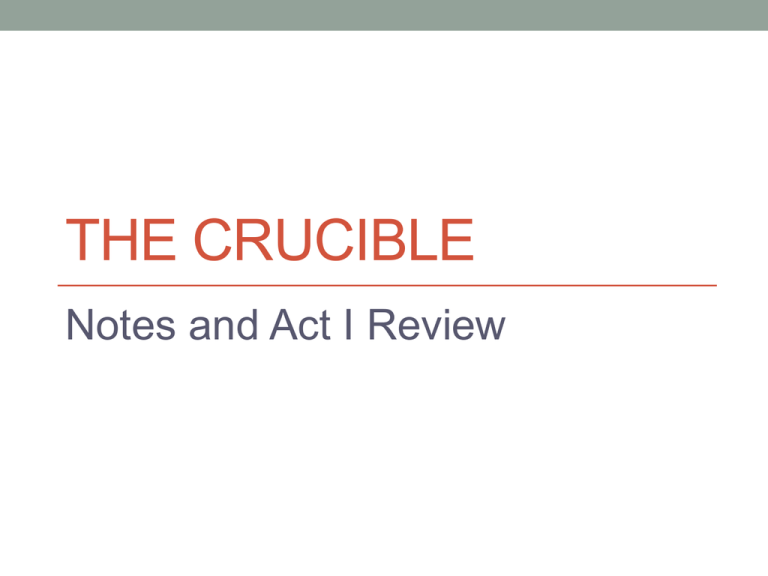
THE CRUCIBLE Notes and Act I Review General Notes • This is an historical drama – Salem, Massachusetts and the witch trials. • This is an allegory - a representation of an abstract or spiritual meaning through concrete or material forms; figurative treatment of one subject under the guise of another. • This is a symbolic play – the characters represent groups of people encountered today or any time period. Characters • John Proctor – a kind of Everyman – flawed but capable of heroism under pressure. • Elizabeth Proctor – She will undergo a transformation which will reflect the importance of self-esteem and forgiveness. • Abigail Williams – not simply a “promiscuous girl” but a young woman damaged by her past and wounded by her lover’s rejection. • How do the other characters resemble people today? Puritan Background • Trial transcripts show that children were behaving strangely. This generated suspicion. • The children blamed Tituba- a house slave least able to defend herself. • At first the children targeted low ranking members of the society, then no one was off-limits. • Records indicate that before the year was out, nineteen people were hanged, one was pressed to death, and four died in prison. Historical Fiction • Arthur Miller makes many changes to the facts. Students must remember that much of what he writes is fiction. • However, Salem was fertile ground for a disaster like the witch hunt as religious dedication lapsed. There was an atmosphere of fear, guilt, and resentment. • Remember that a crucible is defined as a vessel used to melt metals to remove the impure. Act I • The events occur in one day, but they span a huge emotional distance. • At the beginning, the townspeople are worried about sick children; fears and rumors about witchcraft have begun to surface. • By the end Tituba and the girls are crying out accusations, and the hysteria has truly begun. • The motivation for all of this: Abigail William’s desire for John Proctor. Act I • The affair is over for him, but not for her. • Reverend Hale is introduced as an expert at dealing with witchcraft. • He has good intentions, but is arrogant in his knowledge. • His questioning directly prompts the girls’ “crying out.”
